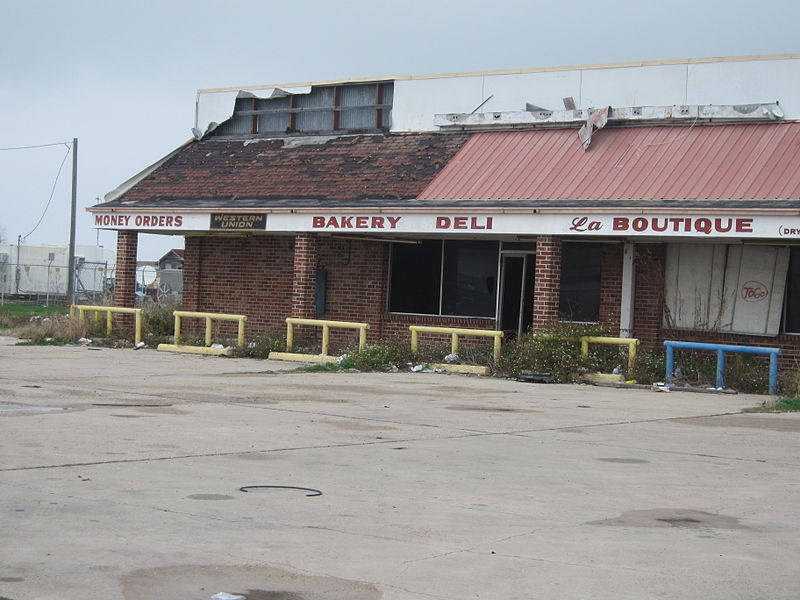Implied Landlord Duties: Maintaining a Commercial Property to Ensure the Success of Both Parties
February 25, 2013
 Commercial landlords often include language in lease agreements to ensure that the tenants to whom they rent spaces will operate businesses that will augment, and not harm, the value and attractiveness of the property as a whole. Lease agreements may impose express obligations on tenants to maintain a high-caliber business obligation. However, landlords should be cognizant of certain implied obligations they have. A court might conclude that, by insisting that tenants run a top-flight business, that the landlord has impliedly issued a commensurate promise to maintain a top-flight property.
Commercial landlords often include language in lease agreements to ensure that the tenants to whom they rent spaces will operate businesses that will augment, and not harm, the value and attractiveness of the property as a whole. Lease agreements may impose express obligations on tenants to maintain a high-caliber business obligation. However, landlords should be cognizant of certain implied obligations they have. A court might conclude that, by insisting that tenants run a top-flight business, that the landlord has impliedly issued a commensurate promise to maintain a top-flight property.
As one example, a court in Bergen County issued a ruling that allowed a tenant to walk away from its lease in a strip mall. Wallington Plaza LLC leased a space to a jewelry store, Abroad Unlimited, but the jewelry store ultimately abandoned the space six months before the end of its lease. The strip mall’s parking lot had fallen into significant disrepair and several storefronts were empty, with the landlord having lost a video store, dollar store, grocery store, drug store and card shop. The jewelry store argued that it did not owe the remaining rent because the landlord had an implied obligation to maintain the strip mall, and did not satisfy that duty.
The trial court and an appeals court in Wallington Plaza LLC v. Taher agreed with the tenant. “Clearly there’s an obligation on the part of landlord to help maintain a mall to keep customers there for [its] tenants,” the trial court wrote. Because the landlord breached its “implied covenant to maintain the shopping center in a good condition to assist its tenants in selling their wares and goods,” the tenant was allowed to terminate the lease and vacate early.
The 2011 decision, while an unpublished opinion, highlights the importance of both commercial landlords and tenants making good-faith efforts to run their businesses effectively, to maximize the potential for success for both sides. The court decided that the landlord breached an implied duty to the jewelry store by failing to make the necessary effort by allowing the parking lot to descend into severe disrepair without repairing it and permitting a mass exodus of tenants to occur without filling any of those spaces.
Whether commercial landlords have a legal duty to maintain their properties in “first-class” condition, or even just in “good” condition, may be an unsettled issue in New Jersey law. However, the Wallington case demonstrates that landlords would nevertheless be wise to put forth good-faith attempts to manage their properties in a diligent manner, in order to minimize the risk of legal liability for breached implied duties.
Commercial rental transactions depend on two parties, landlord and tenant, each putting forward a sincere effort to succeed financially. When one party fails to make that good-faith attempt, it may trigger liability under the parties’ lease obligations. If your commercial tenant or landlord is not meeting its duties, either express or implied, consult the real estate attorneys at Samuel C. Berger, P.C. for advice and representation. Our New York and New Jersey real estate attorneys are here to counsel commercial clients regarding their rights and legal options. Contact us online or call (201) 587-1500 or (212) 380-8117.
Blog Posts:
Tax Court Rejects Homeowner’s Investment Interest Strategy on Mortgage Loan Interest, New York & New Jersey CPA Tax Lawyer Blog, Feb. 19, 2013
Accountant’s S Corporation ‘Dividends’ Really Taxable Wages, Court Says, New York & New Jersey CPA Tax Lawyer Blog, Jan. 25, 2013
Federal Government Clarifies How Employers May Use Job Applicants’ Criminal Background Information, New York & New Jersey Business Lawyer Blog, May 25, 2012
 Hackensack, New Jersey Implied Landlord Duty Lawyer Samuel C Berger, PC Home
Hackensack, New Jersey Implied Landlord Duty Lawyer Samuel C Berger, PC Home



